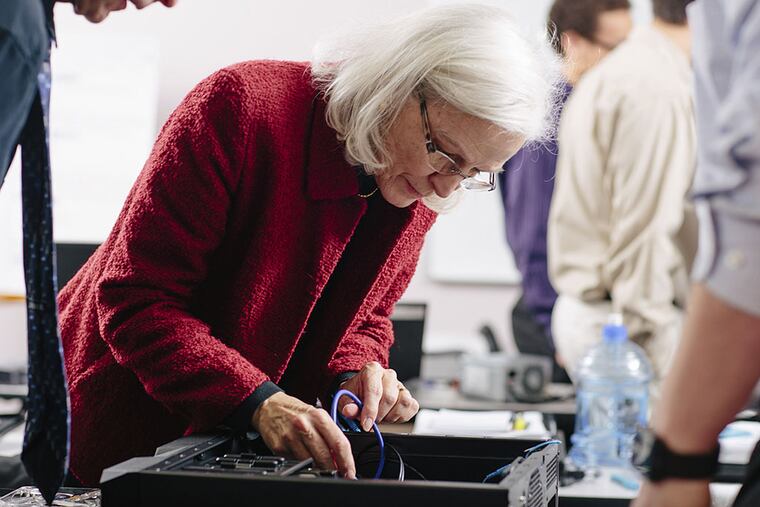Jeff Gelles: A new path to IT training
Tired of that dead-end career? Always wondered if there was a future for you "in computers" - or maybe one for that daughter or grandkid mired in an unrewarding job? Convinced you can't get a shot without at least a bachelor's degree?

Tired of that dead-end career? Always wondered if there was a future for you "in computers" - or maybe one for that daughter or grandkid mired in an unrewarding job? Convinced you can't get a shot without at least a bachelor's degree?
If that sounds a bit like one of those old matchbook ads or wee-hours commercials, it's no coincidence. Decades into the computer revolution, IT careers still beckon to people struggling or dissatisfied in other fields. And there are lots of routes toward one - not just four-year degrees, but community college and for-profit schools, including some financed by student loans that recipients may regret many years hence.
But there's another path: free training supported by government, industry, and nonprofits, leading to certification that promises to make a successful graduate employable. Better yet, you can sign up right now in Philadelphia, through April 13, for one such program: IT-Ready, an eight-week course starting May 4 that could actually change your life.
On Monday, President Obama announced his TechHire Initiative, aimed at providing training such as IT-Ready in a score of cities. As my colleague Jane M. Von Bergen explained Tuesday, a similar program aimed at disadvantaged youth, ITWorks, has already placed about 200 Philadelphia-area trainees in jobs.
What's coming in May for 25 participants is a bit different, in part because IT-Ready also targets older workers, according to Charles Eaton, president of the foundation that developed the training - a course that, not coincidentally, aims to meet the foundation's backers' specific needs.
Eaton runs the Creating IT Futures Foundation, the philanthropic arm of CompTIA, a trade group representing about 2,000 information-technology companies - many that seek people who have passed the group's CompTIA A+ certification exam.
Philadelphia isn't IT-Ready's first city. The training has been offered since 2012 in Minneapolis-St. Paul, and a partner nonprofit, Per Scholas, has offered the same course in New York, Washington, Dallas, and two Ohio cities.
When officials from Philadelphia Works, the workforce-development agency, went to Washington in December for a soft launch of TechHire, they heard about IT-Ready, Eaton said in an interview. The next month, they agreed to try a pop-up version here - an experiment that Creating IT Futures first tried in Omaha.
Eaton says his foundation has learned much from the Twin Cities program - including that the training works well for people already in the workforce. A key attraction is that CompTIA A+ students typically start around $15 an hour, perhaps as an intern or apprentice, with growth possible from there.
"We've seen many of our students get up into the $50s and $60s after a year and a half or two years," he says.
IT-Ready looks for students who are unemployed or underemployed and have a high-school diploma or GED, with at least 10th-grade reading and math skills. The goal is that no more than 25 percent have a bachelor's degree.
"What we look for in people is desire and commitment," Eaton says. "Knowledge and experience are not factors."
The course starting May 4, to be held at One Penn Center on JFK Boulevard, is demanding, averaging 30 hours a week of class time, but Eaton says the payoff should be worth it. So far, 93 percent of enrollees have gotten certified, and 80 percent have won entry-level IT jobs - things like fixing computers, staffing help desks, and solving network and operating-system problems. Most impressive so far, he says, is that 90 percent remain in the field a year later.
"It's an incredible commitment," especially for people without previous academic success, Eaton says. "But with the investment that we're making in people for free, we usually find that people rise to the occasion."
215-854-2776
@jeffgelles